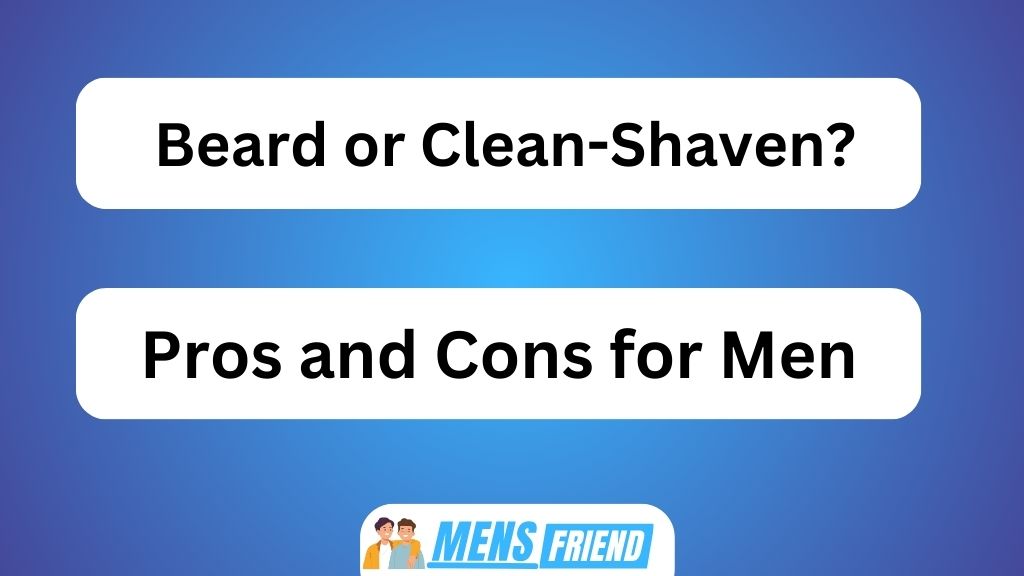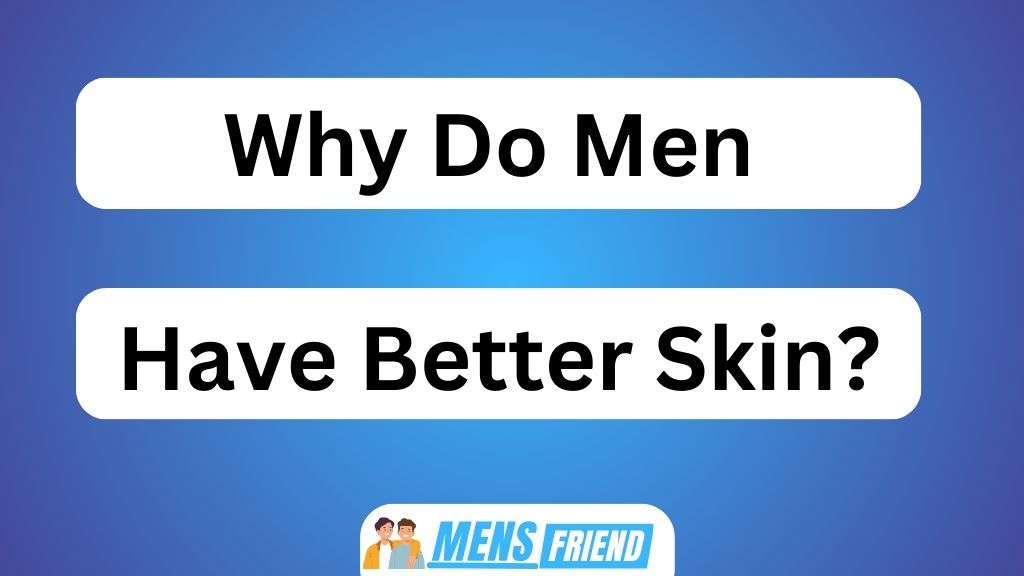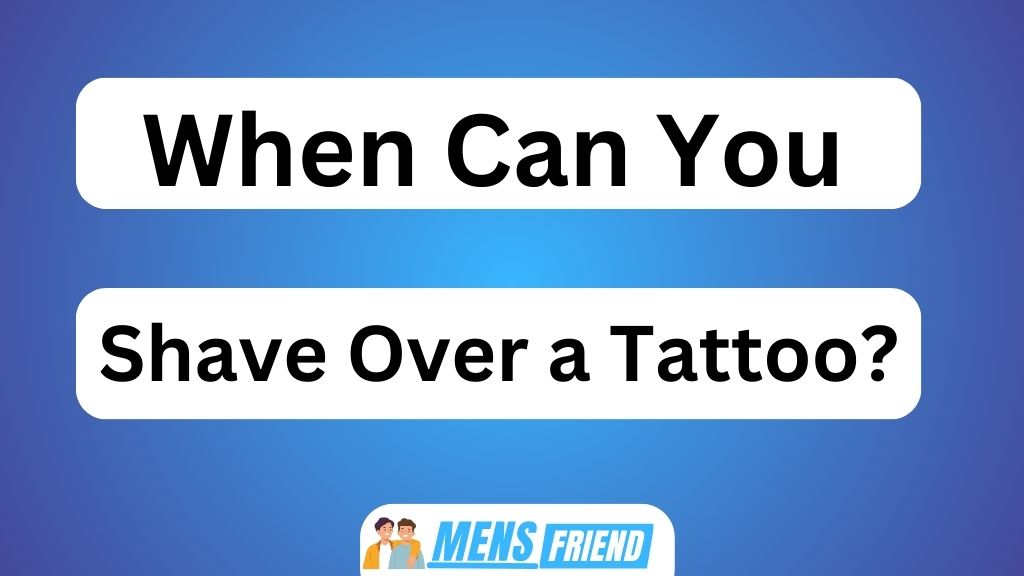The choice between a beard and a clean-shaven face is not merely a matter of personal preference; it carries significant implications for men in various aspects of their lives. This article aims to provide an objective analysis of the pros and cons associated with each option.

Drawing on scholarly research and expert opinions, we will explore the impact of facial hair on professional image, grooming requirements, personal style, perception, attractiveness, skin health, and cultural influences.
By examining these factors in detail, readers will be equipped with valuable insights to make informed decisions regarding their facial hair choices.
Key Takeaways of Beard or Clean Shaven Pros and Cons for Men
- Facial hair can influence how men are perceived in the workplace, with clean-shaven faces often associated with professionalism and authority.
- Proper care and maintenance of facial hair, including the use of beard care products and regular cleansing, contribute to its appearance and hygiene.
- Facial hair allows individuals to communicate personal style and expression, with well-groomed beards contributing to self-confidence and assertiveness.
- Perception of facial hair varies depending on cultural norms and individual preferences, with well-groomed beards or clean-shaven looks tending to be more appealing than unkempt facial hair.
The Professional Image
The professional image of men can be influenced by their choice to have a beard or be clean-shaven. In the workplace, expectations regarding grooming and appearance play a significant role in how individuals are perceived.
Gender stereotypes often come into play when discussing facial hair, with society typically associating a clean-shaven face with professionalism and authority. This perception stems from traditional ideals that equate smoothness and neatness with competence and reliability. However, these stereotypes are not universal, as cultural norms and personal preferences also influence perceptions of professional appearance.

It is important to recognize that judgments based on facial hair can be subjective and vary across different industries and organizations. Ultimately, the decision to have a beard or be clean-shaven should consider the specific workplace context and personal comfort while challenging gender biases associated with grooming choices.
Maintenance and Grooming
Maintenance and grooming practices are essential factors to consider when deciding on a facial hair style. Proper care and maintenance of facial hair not only contribute to its overall appearance but also play a crucial role in maintaining hygiene and preventing skin issues.
Here are four reasons why investing in beard care products is essential for men:
- Improved Appearance: Using the right beard care products can help nourish and moisturize the facial hair, making it look healthier, fuller, and more attractive.
- Skin Health: Beard care products often contain ingredients that soothe the skin beneath the beard, reducing itchiness, irritation, and dryness.
- Hygiene: Regular cleansing with specialized beard shampoos or cleansers helps remove dirt, debris, and excess oil from the facial hair, promoting cleanliness.
- Trendy Styles: Keeping up with current facial hair trends requires proper grooming techniques and styling tools that can be easily achieved with the use of beard care products.
Personal Style and Expression
Personal style and expression can be effectively communicated through the choice and maintenance of facial hair. Fashion trends often dictate the popularity of different beard styles, from the full and robust ‘hipster’ beard to the neatly trimmed goatee. These choices allow individuals to project a certain image or identity, whether it be rugged masculinity, sophistication, or rebellion.

Facial hair also plays a significant role in self-confidence. Studies have shown that men with well-groomed beards tend to feel more confident and assertive in social situations compared to their clean-shaven counterparts. Additionally, maintaining facial hair requires time and effort, which demonstrates dedication to personal grooming and attention to detail – traits highly valued in many professional settings.
Overall, the decision regarding facial hair can greatly influence one’s personal style choices and self-assurance levels.
Perception and Attractiveness
Perception of facial hair and its impact on attractiveness can vary depending on cultural norms and individual preferences. While some may perceive facial hair as a sign of masculinity, others may find it unappealing or even associate it with negative stereotypes. The grooming choices men make regarding their facial hair can greatly affect how they are perceived by others.
Here are four key factors that influence the perception of facial hair:
- Cultural norms: Different cultures have varying ideals of beauty and masculinity, which can shape perceptions of facial hair.
- Personal style: Individual preferences play a significant role in determining one’s perception of attractiveness.
- Facial hair maintenance: Well-groomed beards or clean-shaven looks tend to be more appealing than unkempt or patchy facial hair.
- Social context: The context in which an individual presents themselves, such as professional settings or social events, can influence how their facial hair is perceived.
Understanding these factors is crucial when considering the impact of perceived masculinity and proper facial hair grooming on overall attractiveness.
This discussion transitions us into the subsequent section about ‘skin health and irritation’, where we will explore the potential drawbacks associated with having a beard or being clean-shaven in terms of skin care concerns and irritations.
Skin Health and Irritation
This discussion will focus on two key points related to skin health and irritation:
- Razor burn prevention techniques: Razor burn is a common issue faced by individuals who shave regularly. It can lead to redness, irritation, and discomfort. Various techniques can help prevent razor burn. These include using a sharp blade, preparing the skin properly before shaving, and employing soothing post-shave products. By following these techniques, individuals can minimize the risk of razor burn and maintain healthier skin.
- Moisturizing for sensitive skin: Individuals with sensitive skin often face challenges in finding suitable moisturizers that do not cause further irritation or breakouts. Understanding the ingredients to look for and avoiding potential irritants can aid in effectively moisturizing sensitive skin. By choosing moisturizers specifically formulated for sensitive skin and being mindful of the ingredients, individuals can keep their skin hydrated and reduce the risk of irritation or breakouts.
Razor Burn Prevention Techniques
One effective technique for preventing razor burn is to ensure that the skin is properly moisturized before shaving. This helps to soften the hair and provide a smooth surface for the razor to glide over, reducing friction and irritation. Additionally, using a sharp blade and avoiding excessive pressure while shaving can also help prevent razor burn.

Incorporating natural remedies into your skincare routine can further alleviate the risk of razor burn. Some options include applying aloe vera gel or coconut oil to soothe the skin after shaving, as these have anti-inflammatory properties that can reduce redness and irritation. Another natural remedy is witch hazel, which acts as an astringent and can help calm inflamed skin.
Overall, following proper shaving techniques, such as moisturizing the skin beforehand, using a sharp blade, and incorporating natural remedies like aloe vera gel or witch hazel afterwards can greatly reduce the likelihood of experiencing razor burn.
Moisturizing for Sensitive Skin
Razor burn is a common issue that men face when shaving, especially those with sensitive skin. While prevention techniques can help alleviate this problem, moisturizing is equally important for maintaining healthy skin.
Moisturizers help to hydrate the skin, reducing dryness and irritation caused by shaving. For individuals with sensitive skin, it is crucial to choose products that are gentle and free from fragrances or harsh chemicals that may cause further irritation.

Natural remedies such as aloe vera gel or coconut oil can be beneficial in soothing the skin and providing moisture. Additionally, fragrance-free products specifically formulated for sensitive skin can be effective in preventing razor burn and promoting overall skin health.
Regular moisturizing after shaving can contribute to a smoother shave and reduce the likelihood of razor burn occurrence.
Cultural and Social Influences
Cultural and social influences play a significant role in shaping the perceptions and preferences surrounding beard or clean-shaven appearances for men. These influences are evident in fashion trends and historical significance.
- Fashion Trends: Throughout history, facial hair styles have been subject to changing fashion trends. From the clean-shaven look popularized by ancient Greeks to the bearded counterculture of the 1960s, societal norms dictate what is considered fashionable at any given time.
- Historical Significance: Beards have held various symbolic meanings across different cultures and time periods. In ancient Egypt, a beard represented maturity and wisdom, while in Viking culture, it conveyed masculinity and strength. Clean-shaven faces were often associated with youthfulness or adherence to specific religious or cultural practices.
- Social Perception: People’s attitudes towards beards versus clean-shaven looks can also be influenced by social factors such as media representation or peer pressure. For example, studies have shown that men with well-groomed beards are perceived as more attractive and masculine in certain contexts.
- Personal Expression: Ultimately, individual choices regarding facial hair reflect personal style preferences and identity expression within the broader context of cultural and social influences.
These factors highlight how cultural and social forces shape perceptions of beard or clean-shaven appearances for men throughout history and present-day society.
Frequently Asked Questions
How Do Beards Affect Job Prospects and Professional Advancement?
Beards can potentially affect job prospects and professional advancement. Research suggests that perceptions of professionalism, trustworthiness, and competence can be influenced by facial hair grooming. Using appropriate grooming products and following beard grooming tips may mitigate any negative impact.
Are There Any Potential Health Risks Associated With Maintaining a Beard?
Potential health risks associated with maintaining a beard include bacterial and fungal infections, skin irritation, and allergies. Proper beard hygiene, such as regular washing and grooming techniques like trimming and using beard oil, can minimize these risks.
What Are Some Common Misconceptions About Men Who Choose to Be Clean-Shaven?
What are some common misconceptions about men who choose to be clean-shaven? Stereotypes surrounding clean-shaven men include assumptions of conformity, lack of masculinity, and unadventurousness. However, these stereotypes are subjective and do not reflect the diversity among clean-shaven individuals.
How Does Facial Hair Impact a Person’s Perceived Age and Maturity?
Facial hair’s impact on perceived age and professionalism is a subject of interest. Research suggests that beards can make individuals appear older and more mature, potentially enhancing their professional image and social acceptance.
Are There Any Cultural or Social Stigmas Associated With Men Who Choose to Be Clean-Shaven?
Cultural and social stigmas exist regarding men who choose to be clean-shaven. These stigmas can impact perceptions of attractiveness, as adherence to societal norms may influence the perceived desirability of facial hair in certain contexts.
Conclusion
In conclusion, the decision to sport a beard or remain clean-shaven is a matter of personal preference and style. The choice can significantly impact one’s professional image, as well as their perception and attractiveness.
However, it is essential to consider the maintenance and grooming required for each option, along with potential skin health issues. Cultural and social influences also play a role in shaping this choice.
Ultimately, like two sides of a coin, both styles have their pros and cons that should be carefully weighed before making a decision.





